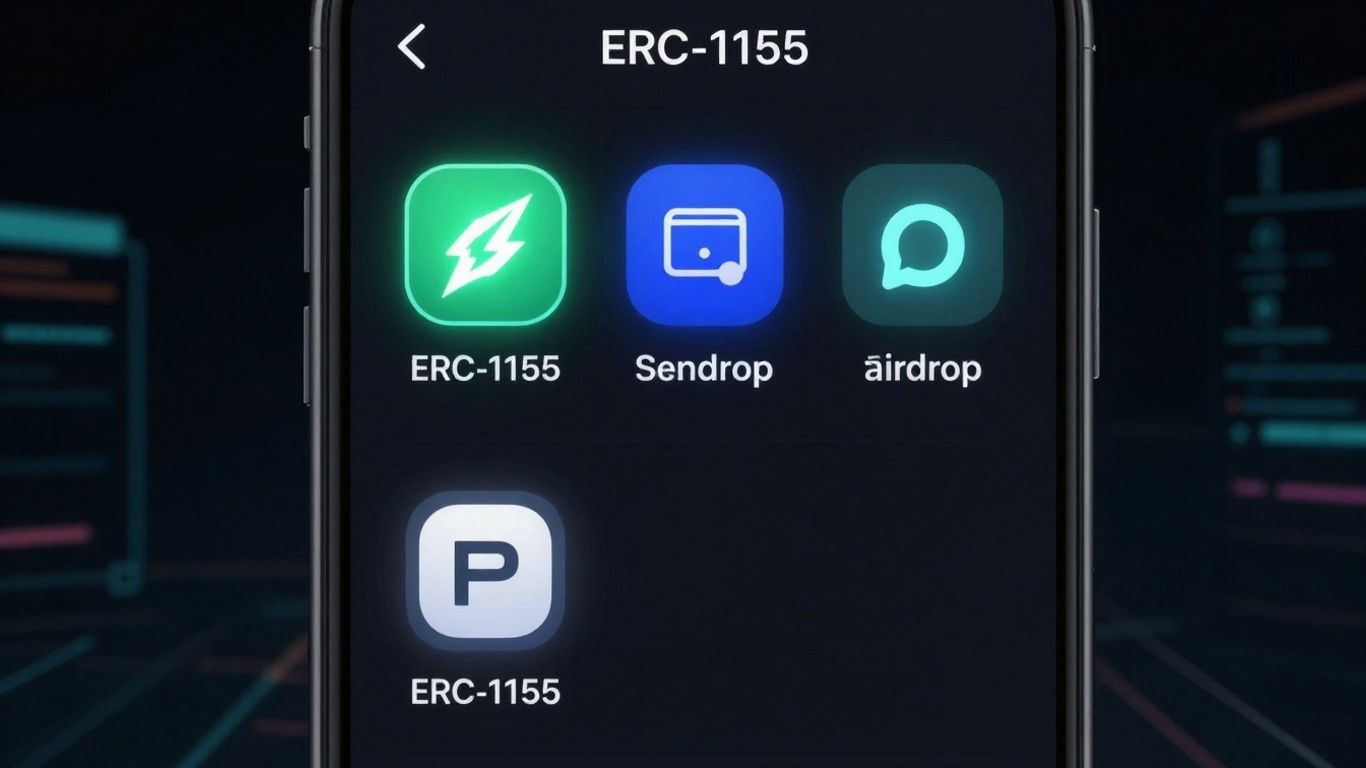[ newsletter ]
Stay ahead of Web3 threats—subscribe to our newsletter for the latest in blockchain security insights and updates.
Thank you! Your submission has been received!
Oops! Something went wrong. Please try again.
Explore ENS name analysis to enhance your digital identity, simplify transactions, and boost security in Web3.





As we dive deeper into the world of blockchain and decentralized technologies, the Ethereum Name Service (ENS) is emerging as a game changer for online identities. ENS transforms complex Ethereum addresses into simple, memorable names, making it easier for users to interact within the decentralized ecosystem. This article will explore the ins and outs of ENS name analysis, covering everything from its benefits to the registration process, and what the future holds for this innovative service.

Okay, so what is ENS? Well, the Ethereum Name Service (ENS) is basically like the phonebook of the decentralized web. Instead of remembering those super long and complicated crypto addresses, ENS lets you use simple, readable names like "mywebsite.eth." It's a system for translating human-readable names into machine-readable identifiers, making the whole crypto experience way less intimidating. Think of it as the Web3 version of the Domain Name System (DNS) we use every day on the internet. But instead of being managed by centralized authorities, ENS is decentralized and runs on the Ethereum blockchain. As of today, ENS has facilitated a total volume of around 87,620 ETH, with a floor price hovering around 0.0018 ETH. There are over 3.1 million names registered, owned by over 832,584 unique owners.
In the digital world, your identity is everything. It's how you're recognized, how you build trust, and how you interact with others. With the rise of Web3, having a solid digital identity is even more important. It's not just about having a username and password anymore; it's about owning your data and controlling your online presence. ENS names play a big role in this. They give you a unique, verifiable identity that you can use across different dApps and platforms. It's like having a passport for the decentralized web. And with tools like Veritas Protocol, you can even check your digital footprint to see what kind of impression you're making online.
So, how does this whole ENS thing actually work? Well, it's built on smart contracts on the Ethereum blockchain. When you register an ENS name, you're essentially buying an NFT that represents ownership of that name. This NFT points to your Ethereum address, and any other information you want to associate with it, like your website, social media profiles, or even your avatar. The process involves a few steps:
ENS operates as a distributed domain name provider, meaning it's not controlled by a single entity. This makes it resistant to censorship and gives you full control over your digital identity. It's a pretty cool concept, and it's changing the way we think about online identity.
Let's be real, those long crypto addresses are a pain. I mean, who can remember 0xAb5801a7D398351b8bE11C439e058B5B0526823? It's just asking for mistakes. ENS fixes this by letting you use a simple name, like myname.eth, instead. It's way easier to share and way less likely you'll send your crypto to the wrong place. Think of it like having a username instead of a complicated account number. This makes crypto transactions way less stressful. You can easily send funds to ENS domains without worrying about typos.
With ENS, you're not just getting a simpler address; you're also getting a more secure one. Because ENS names are tied to your wallet on the blockchain, it's harder for someone to impersonate you or trick you into sending funds to the wrong address. It adds a layer of trust to your transactions. Plus, since you own your ENS name, no one can take it away from you (as long as you keep up with the registration fees, of course!).
ENS isn't just about transactions; it's about making the whole Web3 experience smoother. Imagine using your ENS name as your profile across different dApps, or logging in with it instead of a complicated password. It's all about creating a more unified and user-friendly experience. It's like having a single identity for the decentralized web. It makes things a lot less clunky and a lot more intuitive. It's a small change that makes a big difference.
ENS is a game-changer for anyone using Web3. It's not just about making things easier; it's about making them safer and more accessible. It's a step towards a future where using blockchain technology is as simple as using the internet today.
Alright, let's talk about what makes an ENS name worth something. It's not always obvious, and there are a few things that come into play. It's kind of like trying to figure out why one house sells for more than another – location, size, condition, and all that jazz.
So, what exactly makes one ENS name more valuable than another? Well, a few things:
Keeping an eye on the market is super important. What's hot right now? What are people buying and selling? This can give you a clue about what names are likely to increase in value. It's like watching the stock market – you want to see what's trending. You can see that ENS simplifies interactions with the Ethereum blockchain.
Here's a quick rundown of recent trends:
| Trend | Description ### Valuation Techniques
Okay, so how do you actually put a number on an ENS name? There are a few common methods:
It's important to remember that the value of an ENS name is subjective and can fluctuate. What's worth a lot today might not be worth as much tomorrow, and vice versa. It's all about supply and demand, and what people are willing to pay.
Okay, so you want your own ENS name? It's not too hard, but there are a few steps. First, you'll need an Ethereum wallet, like MetaMask or something similar. Make sure it's one where you control the keys – a non-custodial wallet. You'll also need some ETH in that wallet to pay for the registration and gas fees. Think of it like buying a domain name, but for Web3.
Here's the breakdown:
It's a good idea to double-check everything before confirming any transactions. Gas fees can fluctuate, so keep an eye on those too!
Picking the right ENS name is important. It's like choosing a good username or a domain name – it represents you or your project in the digital world. Here are some things to consider:
Registering an ENS name is pretty straightforward, but people still make mistakes. Here are some common pitfalls to watch out for:
Here's a simple table to illustrate the cost of common mistakes:

Okay, so, think about it: in the Web3 world, your ENS name can be your online identity. It's like having a personalized license plate for all your crypto stuff. Instead of sharing those super long wallet addresses, you can just tell people your ENS name. It makes things way easier when you're trying to build a brand. Imagine having yourname.eth – pretty cool, right?
Businesses can really benefit from ENS names. It's not just for individuals. Companies can use ENS to simplify payments, create memorable URLs for their decentralized apps, and even manage their internal systems. Think of it as a digital storefront that's easy to remember and share. Plus, it adds a layer of professionalism to their Web3 presence. For example, a company might use companyname.eth as their primary domain name, and then create subdomains like shop.companyname.eth or pay.companyname.eth for specific services. This makes it easier for customers to interact with the business and remember their Web3 address.
ENS names are becoming super important for dApps. They make it easier for users to interact with these apps. Instead of typing in complicated addresses, users can just use ENS names to send crypto, access services, and more. It's all about making the user experience smoother and more intuitive. This integration is key to getting more people to use dApps. For example, imagine a decentralized social media platform where you can send tips to creators using their ENS name. It's way easier than copying and pasting a long wallet address, right? Plus, it makes the whole experience feel more personal and connected.
ENS names are a game-changer for Web3. They're not just about simplifying addresses; they're about creating a more user-friendly and accessible digital world. As more people and businesses adopt ENS, we'll see even more innovative use cases emerge.
Here's a quick rundown of how ENS can be used with dApps:
name.eth instead of a long address.And remember, staying vigilant is key to avoiding fraudulent dApps dApps in 2025.
Alright, so you've got your shiny new ENS name. Cool! But it's not all sunshine and rainbows. Managing these digital identities comes with its own set of headaches. Let's talk about some of the less glamorous aspects.
Okay, so here's the deal: ENS names are tied to your crypto wallet. If someone gets access to your wallet, they can mess with your ENS name. That's not good. Phishing scams are a real threat. People will try to trick you into giving up your private keys, and if they succeed, they can take control of your ENS name. Always double-check the websites you're interacting with and never share your seed phrase. Also, smart contract vulnerabilities can be exploited. If the smart contracts that govern ENS have bugs, hackers can potentially hijack names. It's rare, but it can happen. domain name resolution is also a concern.
Think about it: there are millions of ENS names already registered. Finding a good, short, memorable name is getting harder and harder. It's like trying to find a good domain name back in the early 2000s – most of the obvious ones are already taken. This can lead to people squatting on names, buying them up with the intention of reselling them at a huge profit. This makes it difficult for genuine users to get the names they want. Plus, there's the issue of name collisions. What happens if two different entities have similar names? It can create confusion and potentially lead to legal battles down the road.
This is the wild west of digital identity, and regulations are still catching up. There's a lot of uncertainty about how ENS names will be treated from a legal perspective. For example, if you use an ENS name for business, are you subject to the same regulations as a traditional business? What about intellectual property rights? Can you trademark an ENS name? These are all questions that regulators are still trying to figure out. And depending on where you live, the rules might be different. It's a global system, but laws are local. It's a bit of a mess, honestly.
Navigating the legal landscape of ENS names is tricky. It's a new technology, and the laws haven't caught up yet. This creates uncertainty for businesses and individuals who want to use ENS names for serious purposes. It's important to stay informed and seek legal advice if you're unsure about anything.
Okay, so where is all this headed? Well, a few things seem pretty clear. First, ENS is likely to become even more integrated with Web3 applications. Think about it: as more dApps and platforms start using ENS for identity verification and payments, having an ENS name will become almost essential for anyone active in the decentralized space. We're already seeing some of this with SocialFi platforms, where your ENS name can act as your username and reputation marker. The Ethereum Foundation Protocol (EFP) will also play a big part in how people connect and interact on the blockchain, making ENS names even more important for building a digital identity.
Beyond just wider adoption, there's a ton of room for innovation within the ENS ecosystem itself. Imagine ENS names that are also NFTs, giving you more control and tradability. Or think about advanced privacy features that let you selectively reveal information linked to your ENS name. And what about ENS subdomains becoming a standard for organizational structures within DAOs? The possibilities are pretty wild.
It's easy to see a future where ENS names are not just identifiers but dynamic, programmable assets that can be used in all sorts of creative ways. This could really change how we think about digital ownership and identity online.
Ultimately, the success of ENS is tied to the overall growth of the Web3 ecosystem. If Web3 takes off, ENS will be right there, providing a crucial piece of the puzzle: a user-friendly, decentralized way to manage digital identities. This could have a ripple effect, making Web3 more accessible and appealing to a wider audience. It's not just about having a cool domain name; it's about building a more human-centered internet.
As we wrap up, it's clear that your digital identity matters more than ever. ENS gives you a way to stand out in the crowded online space. It’s not just about having a cool name; it’s about making your interactions smoother and safer in the crypto world. Whether you’re a business or just someone wanting to make your mark, grabbing an ENS name can really help. So, don’t wait around. Dive in, secure your ENS name, and be part of this exciting shift towards a more user-friendly internet. Your digital identity is your key to the future.
An ENS name is a user-friendly address that replaces long Ethereum wallet addresses. It usually ends with .eth, making it easier to send and receive cryptocurrency.
Digital identity helps you prove who you are online. It's important for accessing services, protecting your information, and building trust.
To get an ENS name, you need to visit the ENS website, search for your desired name, and follow the registration steps to secure it.
Using an ENS name simplifies transactions, enhances security, and improves the overall experience when using decentralized apps.
Yes, you can sell your ENS name. Many people buy and sell ENS names, and their value can change based on demand.
Some challenges include security risks, the possibility of market saturation, and keeping up with regulations related to digital identities.


